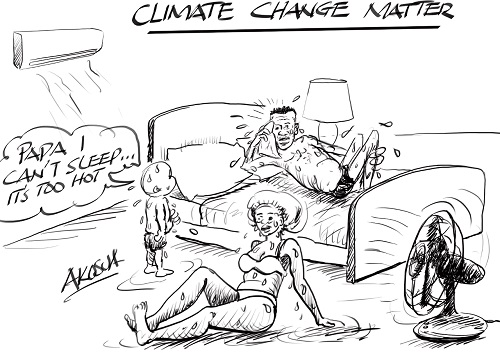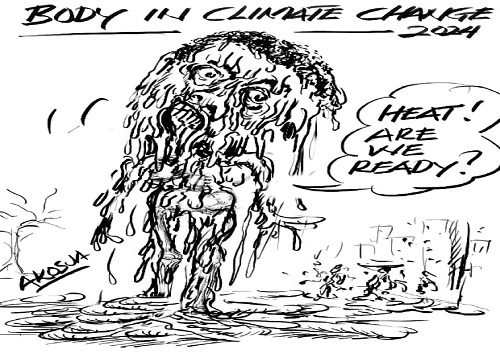

 At a bustling wedding in one of Accra’s affluent suburbs, Chef Kwame Adu watches as plates of uneaten jollof rice, grilled tilapia, and half-eaten banku are cleared from tables, destined for the rubbish bins.
At a bustling wedding in one of Accra’s affluent suburbs, Chef Kwame Adu watches as plates of uneaten jollof rice, grilled tilapia, and half-eaten banku are cleared from tables, destined for the rubbish bins.
Chef Adu lamented, “This food could feed families.” His lamentation and frustration mirror a national crisis.
In 2022, data from the Annual Household Income and Expenditure Survey (AHIES) indicated that in the first quarter, 49.1 per cent of the Ghanaian population (approximately 15.1 million people) experienced food insecurity.
This decreased to 42 per cent (about 13 million people) in the second quarter.
The 2020 Comprehensive Food Security and Vulnerability Analysis (CFSVA) by the Ghana Statistical Service, in collaboration with the World Food Programme (WFP) and Food Agriculture Organisation (FAO,) found that 11.7 per cent of Ghana’s population (3.6 million people) were food insecure which means that they do not have enough food to eat.
Of these, 5.2 per cent (1.6 million) were severely food insecure, and 6.5 per cent (2 million) were moderately food insecure.
Despite these alarming figures of people facing hunger, Ghana discards 84 kilogrammes of food per person annually, 10 kilogrammes more than the global average.
The question is: what do we do with our leftovers at home, in schools, workplaces, and restaurants?
The alarming figures of food waste and the prevailing hunger situation were revealed by Professor Marian Asantewah Nkansah, an Environmental Chemist, in an exclusive interview with the Ghana News Agency on the sidelines of World Earth Day.
Professor Nkansah, citing data from 49 restaurants in the Ashanti Region, noted that each establishment generates approximately 2.89 tonnes of food waste yearly.
Nationwide, 320,000 tonnes of edible food are discarded annually, with hotels, restaurants, and schools contributing 40 per cent of the waste.
She stated, “Imagine redirecting even half of this to communities in need.”
Chef Michael Quainoo, President of the Chefs Association of Ghana, said the food waste problem was more prevalent at buffet-style events than in any other settings.
He explained that guests at buffet events usually pile food high on their plates, yet eat only small portions, leaving half-eaten meals.
Mr Quainoo advocated for portion control, gently advising guests at buffet-style events to take smaller portions and return for more if desired.
However, the impact of food waste extends far beyond hunger, as rotting food in landfill sites emits methane, a potent greenhouse gas.
Professor Nkansah warned that unchecked food waste undermined Ghana’s climate change mitigation efforts.
She emphasised that every discarded meal fuels the environmental crises Ghana is facing.
Despite these challenges, Ghana can learn from other nations on how to manage its “leftovers” and thereby avert food waste problems.
Countries such as France have developed a legal framework for food waste, implementing mandatory composting and pioneering legislation on food donations.
In deliberate efforts to reduce food waste, countries, notably the United Kingdom, have achieved significant reductions through national campaigns, industry engagement, and data-driven approaches.
Ghana can also learn from South Korea, a global leader in mandatory food waste separation and recycling, achieving very high diversion rates from landfill through its “pay-as-you-throw” system.
There are numerous examples that Ghana can learn from to address this significant issue.
Currently, Ghana’s food waste policy is fragmented and prioritises food safety and environmental sanitation over proactive waste reduction.
Ghanaians cannot simply discard food when more than a million of her citizens face severe hunger. This is the time to act and explore what can be done with leftovers.
By Jibril Abdul Mumuni
Source: GNA
The post Ghana’s food waste crisis: A silent threat to hunger and climate change appeared first on Ghana Business News.
Read Full Story











Facebook
Twitter
Pinterest
Instagram
Google+
YouTube
LinkedIn
RSS